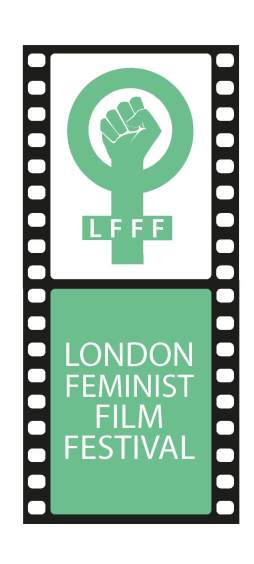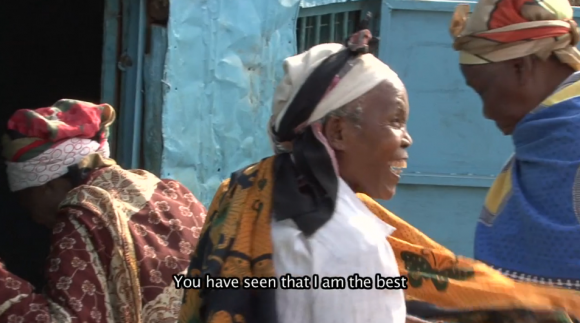
The London Feminist Film Festival opened with a bang last night — a sold out viewing of the UK premiere of Lesbiana, about the lesbians, philosophers, and activists that were key players in creating a revolutionary sisterhood. This weekend, audiences interested in more (Black feminist) lesbian history can look forward to the documentary, Audre Lorde — The Berlin Years 1984 – 1992. Note: This show is sold out — seems it’ll be a packed house!
But lesbians (and everyone else who loves them) aren’t the only group that’ll get to enjoy the London Feminist Film Festival. The organizers have made sure that the interests of African Feminists have been woven into the program as well. Four powerful documentaries highlighting the lives of African women in Kenya, Ghana, and Senegal will be making their debut with feminists this weekend.
I’ve gotten a chance to watch a number of these films, and I can assure you, they are not to be missed. So, if you’re based in London, and are on the fence about attending the inaugural festival, I encourage you to check out the synopses (and mini reviews) below.
4 Power Films about African Women at the London Feminist Film Festival
Taxi Sister (UK Premiere)
Mini Review: Take a drive with Boury, a taxi driver in Dakar, Senegal, as she forges her way through a male-dominated profession. “There are no such things as Taxi Sisters!” a man growls. He towers over Boury, his voice loud and thunderous as he attempts to get her to submit to the idea that she is an impostor in the popular Dakar taxi stand. Boury vacillates between shaking her head and pacing back and forth in frustration while also keeping her eyes open for customers; she’s not driving a Taxi to make a point, she’s trying to make a living to support her family. When she’s on break, she and another Taxi Sister talk about being single working women, dating and relationships, and American tourists: “Watch out for people with big backpacks. They just walk.” Charting its own course, Taxi Sister takes viewers on a tour through Dakar’s streets, segregated by gender, class, and tourist visas, offering poignant, insightful, and humorous insights along the way.
Theresa Traore Dahlberg / Senegal / 2011 / 30 mins / Wolof and French with English subtitles
Synopsis: This award-winning documentary is about a community of women condemned to live in a camp for ‘witches’ in Northern Ghana. More than 1000 women accused of witchcraft in northern Ghana live in refuges, where they pay for protection from the chief who runs them. The Witches of Gambaga follows the extraordinary story of one of these communities of women. Made over the course of five years, this exposé is the product of a collaboration between members of the 100-strong ‘witches’ community, local women’s rights activists, and feminist researchers, united by their interest in ending abusive practices and improving women’s lives in Africa. Told largely by the women themselves, this is a uniquely intimate record of the lives of women ostracized from their communities.
Yaba Badoe / UK & Ghana / 2010 / 55 mins / English and local languages with English subtitles
Synopsis: Elderly women in Kenya undertake a self-defense course to help protect themselves from rape by young men in their community. The rape of elderly women by young men is a big problem in the slums of Korogocho, Kenya. This documentary follows a group of elderly women who are taking a self-defense course to enable them to better protect themselves. The daily realities of the slums and the myths that may contribute to these violent attacks are explored. A powerful portrayal of women who have come together in solidarity to teach each other self-defense skills and to fight back. The film was shortlisted for an award at the One World Media Awards 2012.
Jeong-One Park / UK / 2012 / 27 mins / Swahili and Kikuyu with English subtitles
Synopsis: In Senegal, as in most of the world, football is largely considered a sport for men not women. Ladies’ Turn is a non-profit organisation working to give Senegalese women and girls their turn to play football and to develop important leadership and teamwork skills. Ladies’ Turn recognizes women’s football as a powerful tool for promoting gender equality, both by empowering the women who play and presenting new role models to other women and girls. This film shows the determination of the players and of the Ladies’ Turn organisation, despite the challenges and prejudices they face. With the help of Ladies’ Turn, Senegalese women fight to follow their passion for playing football all the way from small neighborhood fields to the tournament finals in Dakar’s newest stadium. An inspiring story of women pushing boundaries.
Hélène Harder / France & Senegal / 2012 / 65 mins / French and Wolof with English subtitles
About The London Feminist Film Festival
LFFF was set up as a response to the under-representation of women in the film industry, as well as to the lack of films addressing feminist issues and the fact that the representation of women on screen is often narrow and stereotypical. The festival will be a celebration of feminist films past and present, and aims are to inspire discussion about feminism and film, to support women directors, and to get feminist films seen by a wider audience.
Catch the London Feminist Film Festival this weekend at the Hackney Picturehouse. Check out the full program at the festival’s website: www.londonfeministfilmfestival.com
 Meet Spectra: Queer Nigerian Afrofeminist Writer and Media Activist. Social Entrepreneur Nurturing Principled Diaspora and Women's Philanthropy in Media and Tech. Self-Care and Self-Love Evangelist. Idealist Warrior Woman. Big Dreamer. Big Thinker. Big Doer, Too.
Meet Spectra: Queer Nigerian Afrofeminist Writer and Media Activist. Social Entrepreneur Nurturing Principled Diaspora and Women's Philanthropy in Media and Tech. Self-Care and Self-Love Evangelist. Idealist Warrior Woman. Big Dreamer. Big Thinker. Big Doer, Too.

